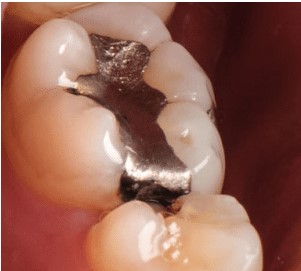Mercury Fillings Contributing to Antibiotic-Resistant Bacteria in Seattle, WA
- What are Mercury Fillings?
- The Rise of Antibiotic Resistance
- The Mercury Connection
- Understanding the Mechanism
- Implications for Oral Health
- Broader Health Concerns
- The Controversy in Dentistry

In a world increasingly concerned with antibiotic resistance, a surprising contributor has come under scrutiny: dental mercury fillings. Amalgam fillings have been used for decades, but recent studies suggest a potential link to the rise of antibiotic-resistant bacteria.
What are Mercury Fillings?
Mercury fillings, also known as dental amalgams, are a mixture of metals, including liquid mercury and a powdered alloy of silver, tin, and copper. Despite concerns over mercury's toxicity, these fillings have been widely used due to their strength and longevity.
The Rise of Antibiotic Resistance
Antibiotic resistance occurs when bacteria evolve and become immune to the effects of antibiotics. This is a global health concern, leading to infections that are harder to treat and more likely to spread.
The Mercury Connection
Research indicates that mercury from dental fillings can contribute to antibiotic resistance in two primary ways:
Environmental Impact: Mercury can leach into the environment, particularly water bodies, where it may alter bacterial communities, potentially encouraging the growth of resistant strains.
Understanding the Mechanism
Mercury's role in fostering resistance is believed to involve several mechanisms:
Genetic Mutation: Mercury exposure can cause genetic mutations in bacteria, some of which might confer resistance to antibiotics.
Horizontal Gene Transfer: Bacteria can exchange genes, including those for resistance. Mercury might enhance this process, spreading resistance more rapidly.
Implications for Oral Health in Seattle, WA
The presence of mercury fillings could potentially impact the oral microbiome, shifting it towards a more resistant and potentially harmful bacterial composition. This could have implications for oral and overall health.
Broader Health Concerns
Mercury is known to have various health effects, particularly on the nervous system, kidneys, and immune system. Its role in promoting antibiotic resistance adds another layer of concern to its use in dentistry.
The Controversy in Dentistry
The dental community is divided on the use of mercury fillings. While some advocate for their continued use due to their durability, others push for alternatives due to health concerns.
The potential link between mercury fillings and antibiotic-resistant bacteria adds a new dimension to the debate over their use. As research continues, it underscores the importance of re-evaluating dental materials for their broader environmental and health impacts.
At Seattle Dental Care in Seattle, WA, we focus on using safe, natural materials to promote a healthy smile and overall well-being. Our holistic dentists carefully evaluate each dental material to ensure they do not contain harmful or toxic substances to the body.
